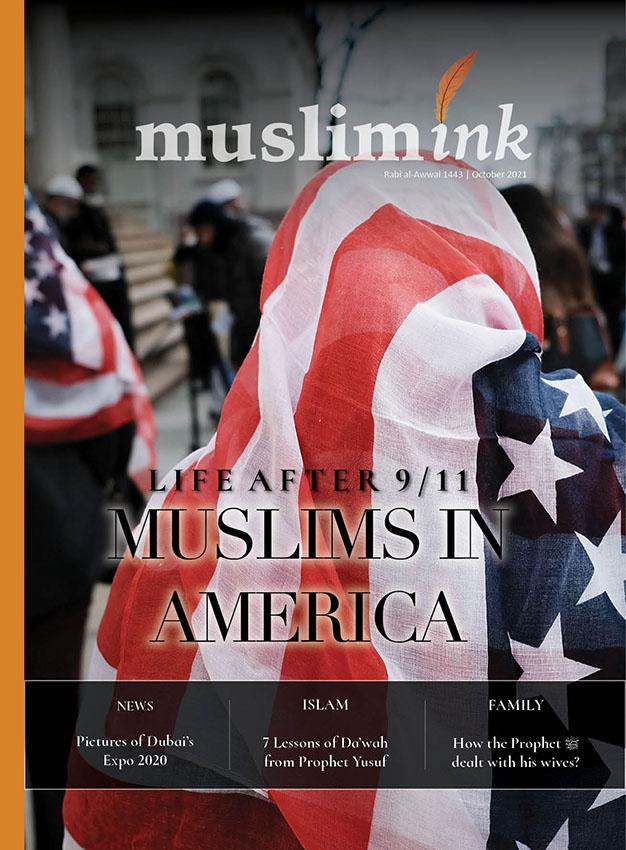
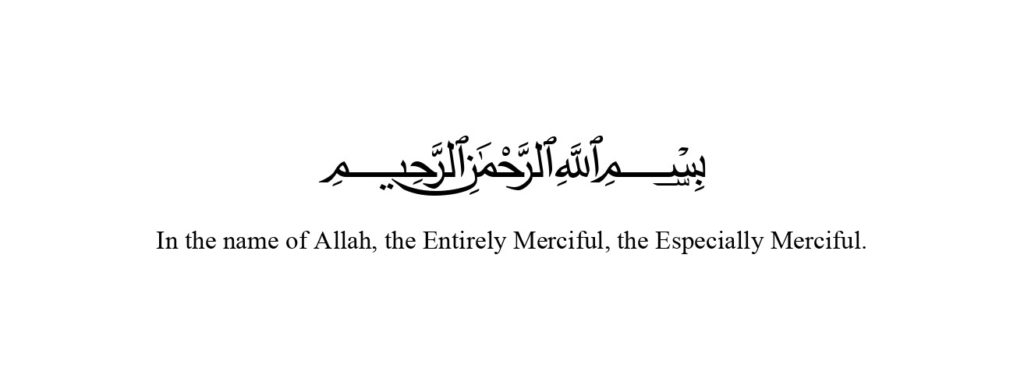

CURRENT AFFAIRS
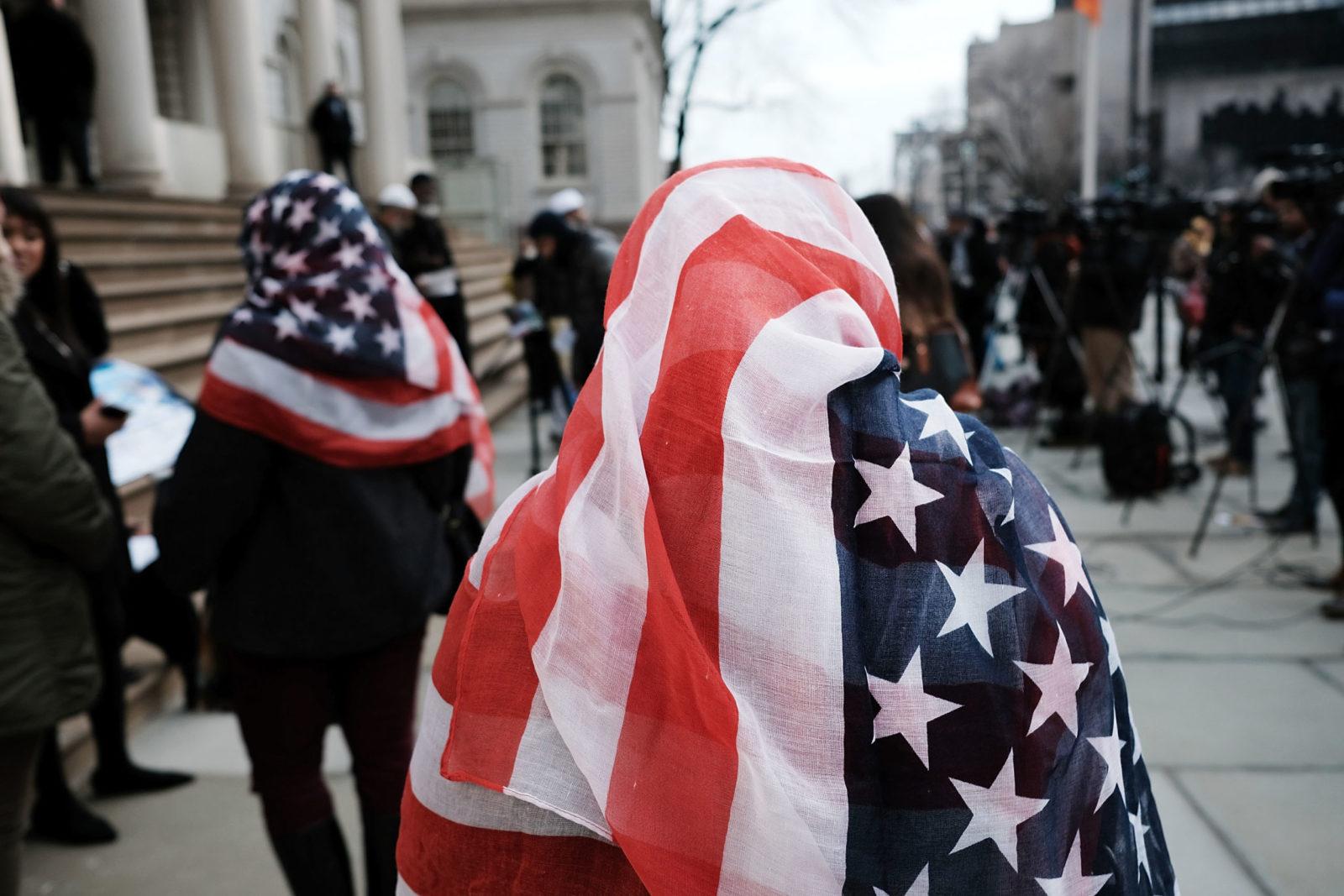
What American Muslims Went Through Post 9/11
The 9/11 attacks brought American Muslims under a heavy spotlight. Right from the next day, Muslims were being suspiciously stared at.
For 20 years the tragedy of that day has transformed American Muslim life, in deep and conflicting ways. The alleged terrorist attacks unleashed a deluge of anti-Muslim hate and misinformation that persists today. Strangers yelling at Muslims, calling them terrorists, and sometimes attacking them in public wasn’t uncommon. In some cases, innocent Muslims were even shot at and killed.
But on the other hand, many Muslims also became proactive in dispelling misinformation about Islam and inviting people to the religion. Many Americans embraced Islam in the years that followed. Muslims also engaged politically and on public forums. The struggle birthed a generation determined to define their place in American life on their own terms.
Hasan Minhaj, a Muslim comedian for example, became extremely popular. His events are mostly held in a sold-out theater. Last year Ramy Youssef won a Golden Globe Award. Americans elected Muslims to Congress for the first time, starting with Keith Ellison and André Carson, African American converts, and then Rashida Tlaib, the daughter of Palestinian immigrants, and Ilhan Omar, a refugee from Somalia who successfully challenged the 181-year rule banning headwear in the House chamber.
“It has caused incredible violence and pain and trauma, but it has also created incredible possibility and hope and new forms of community,”
The New York Times reported last month several stories of American Muslims growing up in a post 9/11 world. As one of those interviewed explained, “It has caused incredible violence and pain and trauma, but it has also created incredible possibility and hope and new forms of community,” Dr. Chan-Malik, associate professor of American studies at Rutgers University, said of Sept. 11. “It absolutely changed everything.”
Mass surveillance of Muslims
Among all the challenges that the Muslim community went through, the most significant perhaps was the mass surveillance and racial targeting of innocent Muslims by government agencies like the FBI.
Innocent Muslims were harassed and investigated without any reason for suspicion. Recent revelations by former FBI officers and in particular by a whistleblower FBI special agent Terry Albury provided evidence and context to how this all happened.
In October 2018, Albury was sentenced to four years in prison for releasing FBI’s operational documents to the press. He was released in November 2020. The New York Times published a detailed account of his story last month. Much of the material in this article based on the NYT report.
Intelligence agencies spread the hysteria that thousands of Al-Qaeda operatives hid among the Muslim communities and were being indoctrinated in the mosques around the country.
“These documents confirmed what American communities — primarily Muslims and communities of color — and rights groups had long known or thought to be true,” said Hina Shamsi, director of the National Security Project at the American Civil Liberties Union. “For years we’ve been hearing from people who were surveilled or investigated or watchlisted with no apparent basis for the FBI to suspect wrongdoing, but based primarily on their race or religion or political organizing and beliefs.”
Intelligence agencies spread the hysteria that thousands of Al-Qaeda operatives hid among the Muslim communities and were being indoctrinated in the mosques around the country.
How it all began
FBI’s director, Robert Mueller, was appointed just a week before the Sept. 11 attacks. After the tragic events, there was panic in the government. The Bush administration had ignored several warnings of an imminent attack. Worried about more Al-Qaeda attacks, the Justice Department initiated a search for the “terrorists among us,” as Attorney General John Ashcroft had said during an October 2001 speech.
In Washington, the government’s most senior officials, including the FBI director, met each morning to go over the daily threat matrix, a spreadsheet detailing every rumor and possible threat to national security.
Former CIA official Philip Mudd later called much of the material in the threat matrix “trash,” but the people who read it saw it very differently.
The US response to terrorism eventually became a domestic surveillance program.
By the end of September 2001, Mueller told US President George Bush that Al-Qaeda had 331 potential “sleeper” operatives inside the United States. By the following October, intelligence officials were estimating that anywhere from 2,000 to 5,000 Al-Qaeda terrorists might be hiding within various Muslim communities across the United States.
Virtually all of these supposed terrorists turned out to be nonentities — “ghost leads,” as they were called.
The US response to terrorism eventually became a domestic surveillance program. It was a radical shift from the FBI’s historical investigative approach.
“What Mueller did, with the support of President Bush and Attorney General Ashcroft, was leverage the fear of another Al-Qaeda attack to transform the bureau from a law-enforcement agency into a domestic intelligence agency,” said Michael German, a former FBI agent and author of “Disrupt, Discredit, and Divide,” a 2019 critical analysis of the post-9/11 FBI.
This new mandate exposed a vast number of people who were not suspected of breaking the law to some of the same intrusive techniques the bureau had long used against people it suspected were criminals.
“All of this was done without a clear public discussion of what this development might mean for American freedom and democracy or whether it would actually result in greater security,” said German. “As it turned out, spying on innocent people doesn’t help catch guilty people, so it was a flawed approach.”
On 24 October 2001, Congress passed the Patriot Act, which gave the FBI unprecedented power to access financial and communications data of anyone, including American citizens, it believed to be connected to terrorism.
Spying on Muslims; Islam was the enemy
President Bush, in his speeches following Sept. 11, described Islam as a religion of peace and portrayed the attackers as outliers. But, according to Terry Albury, “it was made very clear from Day One that the enemy was not just a tiny group of disaffected Muslims,” he said. “Islam itself was the enemy.”
Albury was asked by two senior agents in the San Francisco division to take an Arabic language class at UC Berkeley and hang around the Zaytuna Institute, a nearby Islamic education center.
Albury spent a year at Berkeley and Zaytuna, befriending students and instructors. “One guy was an aspiring State Department employee — a white kid from Berkeley who wanted to learn Arabic,” he recalled.
Others were student activists or do-gooder types looking for a more nuanced perspective. No one he met talked about jihad or tried to convert him to Islam. Still, he took careful notes, passing them to the agents, who never told him what they did with the names and numbers he provided.
At office, he started getting used to the casual Islamophobia, which he later recognized as endemic to the post-Sept. 11 FBI.
FBI agents were under tremendous pressure to boost the number of open or active investigations and informants, which resulted in improving the office’s statistics and helped get more funding for agents.
The only real case of terrorism Albury worked on throughout his years was an investigation on a Bay Area engineer, Rahmat Abdhir, whose brother, Zulkifli, was a bomb maker in the Philippines and on the FBI’s Most Wanted Terrorists list. The case had ample of evidence and “was an exception,” according to Cook, who served as a supervisory special agent on the San Jose joint task force from 2002 to 2007.
“I’d say most of our investigations were based on very thin leads from questionable sources,” said one former agent on the San Jose joint task force. “But what was the alternative? The government was convinced that there were sleeper cells all over the country, and we had to find them.”
FBI agents were under tremendous pressure to boost the number of open or active investigations and informants, which resulted in improving the office’s statistics and helped get more funding for agents.
In 2007, a new squad supervisor directed a major intelligence initiative against a purported Hezbollah sleeper cell in Silicon Valley. The information came from a Lebanese Christian informant who Albury learned had an open disdain for Muslims. Based on these claims, Albury said, at least eight investigations were opened on various targets, including an unassuming engineer Albury kept tabs on for more than a year, but there were no actual terrorists.
Albury moved to Minneapolis in Minnesota and found FBI agents there making extreme hate-filled comments against Muslims, and in particular against Somali immigrants.
Virtually all of these supposed terrorists turned out to be nonentities — ‘ghost leads’
One day, Albury was handed a thick file pertaining to the leader of a prominent mosque in Minneapolis-St. Paul. The imam had been on the FBI’s radar for years, suspected of radicalizing youth in his community. Albury found nothing in his file to suggest the man was sympathetic to terrorism. Still, he recruited an informant to insinuate himself into the cleric’s world. The informant spent a year praying at the mosque, slowly making his way into the imam’s inner circle. He recorded every conversation.
“Had he been very outspoken against U.S. foreign policy?” Albury says about the imam. “Yes, but that was his constitutional right. He was also very upset when members of his congregation told him that FBI agents had knocked on their door and harassed them, and he sermonized about that, and this was also perfectly legal to do.” But never once had the imam said anything to tie him to Al-Shabaab — in fact, as the years went on, he became an outspoken opponent of terrorism, even urging his congregation to call the FBI if they suspected their children were being recruited. Yet the investigation remained open.
Innocent Muslims trapped in the system
The problem with opening investigations and files on innocent people was, as Albury later realized, their entire lives would be forever affected. Any time such a person applied for a passport, or a job that required a background check, or a driver’s license, or simply had his name run through any sort of government database, for the rest of his life, it would show up that the person had been looked at by the FBI, which would inevitably be viewed as suspicious. Albury found thousands of Minneapolis Muslims in the system and untold millions elsewhere in the country.
FBI agents would also coerce Muslims into spying on their communities threatening them of more pressure or putting them on the no-fly list. According to Albury, this was not uncommon during his time in both San Jose and Minneapolis.
“What the FBI was directing us to do was to go into these communities and instill fear…”
“I don’t think anyone fully appreciates how demoralizing it is to be sitting across the table from a peace-loving man or woman from a foreign country, insinuating all kinds of baseless BS, attempting to coerce them to spy on their equally peaceful community,” he said, “but it was also my job.”
At various times, the FBI cast its net across entire communities of Muslims, using a specific type of assessment known as a Type 5.
“What the FBI was directing us to do was to go into these communities and instill fear and then generate this paranoia within these people so that they know that they’re under suspicion perpetually,” Albury said.
“Say you’d get an alert from the CIA or some other intelligence source that an ISIS recruiter had been trying to recruit teenagers and young men from a specific Syrian refugee camp during a specific time period,” he says. “This happened all the time. That would give the FBI license to look at every male Syrian refugee between certain ages who had been at that camp and then come into the United States after the time the recruiter was supposed to have been there. And so the FBI would look at all of those kids, and they could keep looking at those kids, and their friends, and maybe all the kids in a 30-block radius because they could say they had ‘credible intelligence’ to suggest that some of these people had terrorist sympathies.”
The problem with opening files on innocent people was their entire lives would be forever affected.
“It becomes a vicious circle,” Albury says, “because the longer that you look at a kid, the bigger the file gets, even if they’ve done nothing. And then six months later, somebody calls the FBI and says, ‘I’ve seen some suspicious activity in this neighborhood,’ and an agent can see that we have thick files on all of these kids. But the question is, OK, so you have thick files on these kids, but the files have shown that these kids are guilty of nothing. So what does that actually achieve? It achieves ‘intelligence,”’ he says. “And that is a nebulous, wonderful-sounding word that everyone likes to throw around, but based on my experience, the entire purpose of these assessments was to create a database of American Muslims.”
It was in this manner, among others, that large numbers of people in Minneapolis’s Somali, Syrian and other immigrant communities, and those in other cities, were put under long-term monitoring without their knowledge, their names inscribed in FBI files for use in later investigations or disseminated to other intelligence agencies.
Abusing community workshops
A counter-radicalization program known as Shared Responsibility Committees brought together local and federal law enforcement with various members of the community — imams, teachers, psychologists, coaches, social workers — to come up with intervention strategies to dissuade young people from radicalizing — the Obama administration’s Countering Violent Extremism initiative.
Generous funding had been made available to nonprofit organizations and law-enforcement agencies to run community-engagement workshops, though several local and national advocacy groups saw the program as an effort at intelligence gathering. The FBI was entitled to pursue prosecution, or share information with other agencies in the government or foreign governments.
No evidence against Islam or Muslims in the US
In reality, there was no evidence of Al-Qaeda sleeper cells, as was acknowledged in a 2005 internal FBI report.
“We’ve built this entire apparatus and convinced the world that there is a terrorist in every mosque, and that every newly arrived Muslim immigrant is secretly anti-American, and because we have promoted that false notion, we have to validate it. So we catch some kid who doesn’t know his ear from his [expletive] for building a bomb fed to them by the FBI, or we take people from foreign countries where they have secret police and recruit them as informants and capitalize on their fear to ensure there is compliance. It’s a very dangerous and toxic environment, and we have not come to terms with the fact that maybe we really screwed up here,” Albury said. “Maybe what we’re doing is wrong.”
There was no existential threat from Islam, as Albury was taught as a surveillance trainee, just an endless list of people who were being targeted because they were Muslim. It had taken him a decade to reach this conclusion.
Terry Albury decided to expose FBI’s practices to the press in public interest and to bring accountability to the agency. He got in touch with The Intercept and provided evidence of FBI’s practices. The Intercept published a series of articles on the topic, which did not gain much public attention as all eyes were fixed on Donald Trump. Albury was prosecuted and sentenced to four years in prison.
“I did it because it got to a point where the reality of what I was a part of hit me in a way that just shattered my existence. There is this mythology surrounding the war on terrorism, and the FBI, that has given agents the power to ruin the lives of completely innocent people based solely on what part of the world they came from, or what religion they practice, or the color of their skin. And I did that,” Albury said. “I helped destroy people. For 17 years.”
‘Islamic scholars can turn the Taliban towards moderation’
By Mohammad bin Abdul Karim Al-Issa
Secretary General of the Muslim World League
Coalition forces waged a 20-year war in Afghanistan but lacked the religious authority necessary to explore a moderate version of the Islamic identity the Taliban claimed to defend. Religion connects most Afghans. It’s the force the Taliban used to build their movement, unite factions and offer an alternative to the US-backed government. Religion is therefore the strongest force to guide the Taliban towards a moderate future. That means the Muslim world must leverage its collective religious authority when engaging the Taliban government.
Twenty years ago, when the US demanded the extradition of Osama bin Laden, the Taliban proposed sending him to a tribunal overseen by the Organization of Islamic Co-operation, a 57-nation Muslim body. Despite the Bush administration refusing, the Taliban were making a statement about the trust they placed in pan-Islamic religious authorities.
❝
To govern with legitimacy, the Taliban must incorporate the concerns and aspirations of every Afghan. Islam offers guidance but it must be rooted in a true and moderate interpretation.
It shows the Islamic world can influence the Taliban, who anchor their motivations to faith (as they understand it). The Taliban’s test will be whether it can govern effectively and not advance an ideology. Its legacy is defined mostly by exclusion: females, religious and tribal minorities, and those who didn’t share their harsh and often misguided understanding of Islam. To govern with legitimacy, the Taliban must incorporate the concerns and aspirations of every Afghan. Islam offers guidance but it must be rooted in a true and moderate interpretation.
Many Muslim countries have learnt to balance the challenges of modernity with their beliefs through Islamic scholarly argument. The Makkah Declaration, endorsed by 1,200 prominent Mufti and Muslim scholars, has been used to promote a tolerant Islam. The Muslim World League (MWL), the world’s largest Islamic NGO, has urged the Taliban to uphold this declaration. The MWL also organised a peace conference where Afghan and Pakistani scholars suggested forming a joint committee to advance common visions of peace rooted in authentic Islamic values.
Such dialogue must continue to support responsible governance in Afghanistan. Whatever the Taliban’s beliefs, they will continue to seek international recognition and funding. The country faces hunger, a possible insurgency and a gaping budget deficit. They will have to listen — and make concessions — or their government will fail. That means the world’s Islamic scholars and clerics have an invaluable opportunity to secure a peaceful Afghanistan.
Pakistan sends 300 ton relief trucks to Afghanistan
Pakistan government recently dispatched 17 trucks loaded with 300 ton edibles to Afghanistan on the humanitarian basis. Briefing media at the at Pak-Afghan border Torkham, Chairman, Pak-Afghan Cooperation Forum (PACF) Habibullah Khan Khattak, said “Afghans are our Muslim brothers and neighbors and we have centuries old relations with them.”
He said that the 40 years long war in Afghanistan ruined the economy, agriculture and administrative infrastructure of the country and the sudden withdrawal of international aid agencies put the entire population at risk.
Habibullah said, last year’s drought also added to the miseries of Afghan people who were facing humanitarian crisis.
The situation can result into a humanitarian catastrophe, if an immediate and effective steps are not taken, he added.
No sales tax on Afghan fruits
Pakistan has removed the sales tax on the import of fresh fruits from Afghanistan. Previously, Pakistan earned a 20% sales tax on the purchase of fresh fruits from Afghanistan. The tax exemption will assist Afghanistan in increasing exports and stabilizing its economy, which has suffered since the Taliban’s takeover.
Afghan women who came out in support of the Taliban in Kabul last month.
Taliban’s selfies and sightseeing
Afghanistan’s new defense minister recently criticized young Taliban foot soldiers for taking selfies, wearing stylish clothing, and sightseeing in Kabul—sending a warning that such activities are “damaging” the Islamic group’s status.
Defense Minister Mawlawi Mohammad Yaqoob chastised soldiers in a speech as photos circulated of young Taliban men—many of whom have never lived in an urban area—enjoying the sights and attractions of Afghan cities.
“Stick to the tasks you have been assigned,” Mawlawi Mohammad Yaqoob warned soldiers, according to The Wall St. Journal. “You are damaging our status, which has been created with the blood of our martyrs.”

Members of the Taliban have been spotted brandishing weapons while riding Swan-like peddle boats at Band-e Amir National Park. The pictures were taken on September 18.
‘Praying to the West’ Review
A former atheist writes about his journey to reclaim his Muslim faith, and discover the diversity of Islam in the West
Omar Mouallem’s “Praying to the West: How Muslims Shaped the Americas” is an account of the author’s journey as he understands the truth of Islam after growing up an atheist and discovers the diverse Muslim heritage in the Americas.
Growing up in Canada, Mouallem left the religion of his parents. He says he was a rebellious atheist from the time he was a teenager. As he went further and further away from the faith of his family, he brushed aside his mother’s admonition: “You were born Muslim, and you’ll die Muslim.”
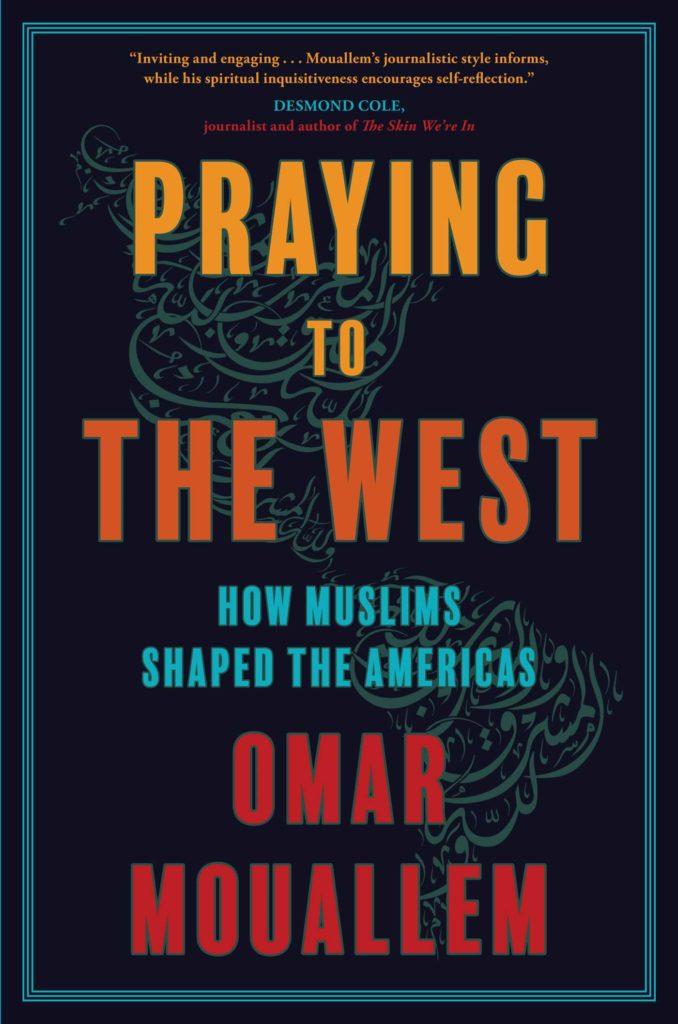
In the years following the Sept. 11 attacks, he found himself dealing with growing Islamophobia. Eventually, in an era of “Rohingya and Uyghur genocides, ethnonationalism and misinformation,” the author writes, he felt “compelled to reclaim the thing that makes me a target.” And so he embarked on a journey that is as much about reclaiming his lost faith as it is learning about the diversity and influence of Islam in the Americas.
He travels to Salvador, Brazil, where he searches for Islam that arrived with the slaves from Africa, only to find that, due to early repressions, “it vanished from memory.” Now all that’s left is a “residue,” evidenced in practices such as wearing white robes.
He visits North America’s northernmost mosque, near the Arctic Circle in Inuvik in the Northwest Territories, where Muslim immigrants have been living. He discovers that Muslims are popular with their Inuit neighbors for their good works, for giving schoolchildren free backpacks, for donating food to the elderly and much else.
He journeys to the Midwest to find the site of one of North America’s earliest mosques, a shed built in the Dakota fields near where Mouallem’s family first settled at the turn of the 20th century. He learns that local descendants of those early Muslims have all assimilated; Christians are now generously rebuilding the long-since-demolished mosque.
❝
“Praying to the West” is a testament to his journalistic acumen, full of well-chosen and vividly rendered stories.
Mouallem is an educator and a successful journalist. He has written for mainstream publications in Canada and the US and won several awards. “Praying to the West” is a testament to his journalistic acumen, full of well-chosen and vividly rendered stories. The book is an illustration of how many people, often scattered and marginal, practice Islam in the Americas. He details their struggles to survive, to create a community or build a mosque.
Mouallem also presents the challenges Muslims face in the West as a victimized minority. He highlights the intertwining of Islamophobia, orientalism, and assimilation. “America’s unique brand of Islamophobia teaches us that Muslim piety equals savagery,” he says.
Quote of the Month
Predominantly, Muslim countries average 2.4 murders per annum per 100,000 people, compared to 7.5 in non-Muslim countries. The percentage of the society that is made up of Muslims is an extraordinarily good predictor of a country’s murder rate.

Exhibition on Islamic Art’s Influences on Cartier
The show, to open in Paris and then Dallas, is to include historic references and more than 200 gems. Cartier owes much of its signature style to influences from far beyond its headquarters in Paris, and this fall a new exhibition is intended to explore one of those inspirations.
“Cartier & Islamic Art: In Search of Modernity” is being organized by the Musée des Arts Décoratifs in Paris, where it is scheduled to run from Oct. 21 to Feb. 20, and by the Dallas Museum of Art, to open May 14, 2022.
The jewelry house, which was established in 1847 by Louis-François Cartier, is also the show’s sponsor.
The first half is to focus on “the context of the discovery of Islamic art at the beginning of the 20th century in Paris and the impact of that discovery on the designers of the house,” said Judith Hénon-Raynaud, curator and deputy director of the Department of Islamic Art at the Musée du Louvre, which contributed artwork to the exhibition.
Among the objects selected for display are items collected by two of the founder’s grandsons: jewelry acquired by Jacques Cartier during his travels in India and books with notations by Louis Cartier, along with works from his collection of Islamic art. “We have proof that the designers were working with Islamic pieces in their hands,” Ms. Hénon-Raynaud said.
Most of the Cartier jewels — more than 200 pieces — are to appear in the show’s second half, highlighting elements derived from Islamic art that now are part of the house’s vernacular, like the repeated palmette motif of a 1936 turquoise tiara.
Évelyne Possémé, the chief curator of ancient and modern jewelry at the Musée des Arts Décoratifs, who also worked on the exhibition, said that it revealed the importance of Islamic art beyond a single brand. “It’s about the process of creation and the place of jewelry in decorative arts and not just as fashion,” Ms. Possémé said. “Islamic art was a source for new inspiration and new European decorative arts. We have Islamic art to thank for many lessons.”
‘I could not reconcile faith with the industry’
Muslim supermodel who quit fashion
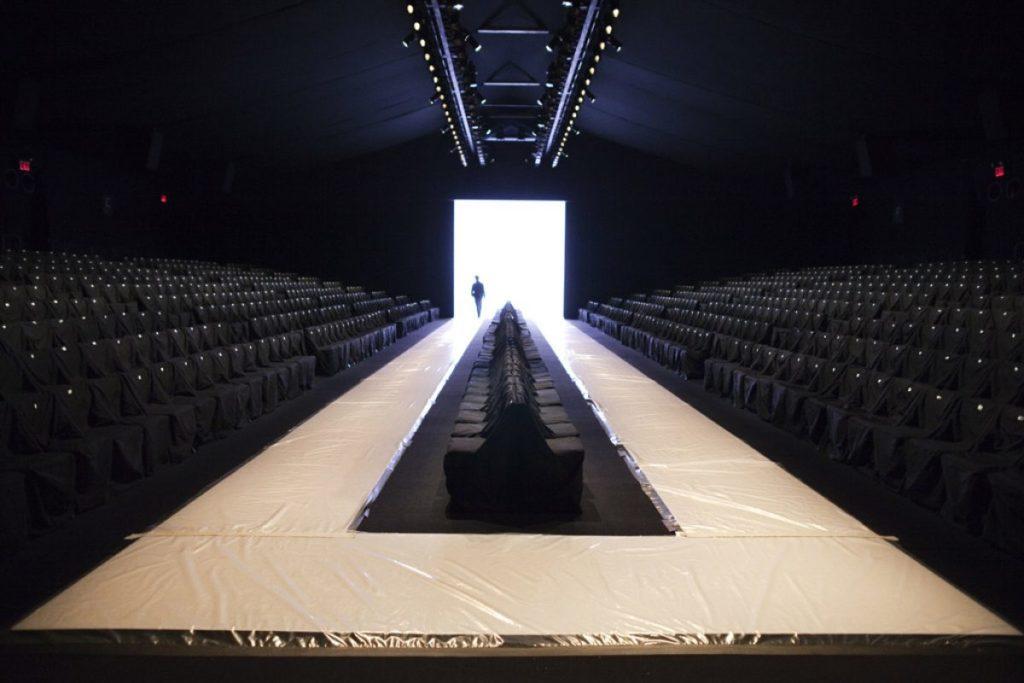
Halima Aden, 23, who became the first ‘hijabi’ supermodel surprised the industry last year by quitting her budding career.
Halima, who rose from a childhood in a Kenyan refugee camp to make history wearing the hijab on the catwalks of Milan and New York, and appeared in a burkini on the cover of Sports Illustrated.
In an emotionally raw Instagram post, she explained that she could not reconcile her faith with the demands of the industry that had made her a star. She had told no one what she was about to do.
“I said I’m walking away and, no kidding, my emails flooded. I had offers from fashion brands, to do the cover of X-Y-Z magazine. And I turned them all down. Like, ‘Nope – you’re not going to use me now.'”
From the outside, it had seemed that Halima was changing fashion. Raised by a single mother who had fled violent turmoil in Somalia, she was granted asylum in the US with her family aged seven. She was spotted during a beauty pageant in her home state of Minnesota in 2016, mentored by Carine Roitfeld and was soon walking runways for Max Mara, Yeezy and Dolce & Gabbana. Brands believed that she was their gateway to a vast untapped market of Muslim women who want style without compromising their faith, just as mainstream fashion was also having a modest moment.
In many ways she was able to forge an untrodden path for Muslim women in the fashion industry; clauses in her contract ensured her a private space to change outfits backstage, and she turned up to shoots with a suitcase full of hijabs and other modest accessories.
She was branded the first Muslim supermodel, and touted as a sign that the industry was changing for the better.
Away from the spotlight, though, it was a different story. “In the first two years I had a lot of control, but for the last two years I was getting comfortable and trusting the styling team to put me in outfits and play with my hijab any which way they wanted to. Fashion is a very creative space so I don’t want to blame them. But I saw my hijab shrinking to something I didn’t even recognize any more.”
❝
I saw my hijab shrinking to something I didn’t even recognize any more.
Looking back through Halima’s archive, the transition is clear. In the pageant and her early modelling days, when she was wearing her own hijab and styling herself, her head coverings are stylish but simple. In later images, they have been replaced by jeans, tulle or intricate jewellery – symbols of fashion, not faith. On set, she was the only Muslim, always bearing the burden of explaining to stylists and photographers what is and isn’t compatible with her faith.
Her epiphany about the industry eventually came from within her close-knit, traditional family. “My little cousin wanted to model; she was asking me to introduce her to my agency. And I said no, absolutely not, because of what I’d seen behind the scenes. So when I said no to her, I started to think, ‘Why am I in this industry?’ That was the tipping point. I didn’t want to be a hypocrite.”
Ten months on, Halima says she has no regrets about quitting. And now she is coming back to fashion – ‘coming home’, as she puts it – with a string of collaborations with modest fashion houses that she has hand-picked.
On the one hand, it is a great business move: the Islamic fashion market is booming and is projected to be worth $400 billion by 2024. On the other, it is a natural fit for a woman who has worn the hijab since she was six.
Now she has a new approach to the industry. “I want to support brands that I truly believe in, where 100% our values align.”
❝
“I want to support brands that I truly believe in, where 100% our values align.”
Modanisa, a Turkish modest fashion house, has signed Halima as its global brand ambassador. On one of its sets, several of the crew are also wearing hijabs, and the headscarf that Halima is wearing is once again her own choice.
She has seized back control of her life and career in an industry where models are too often left without agency over their own bodies.
Her decision to quit resonates far beyond religion: abuse scandals have been uncovered across modelling, where girls as young as 14 have been catapulted into a world where strangers have access to their bodies.
“On Instagram it looks glamorous, but burnout is real. Young men and women who are sometimes at their most vulnerable are entering this industry. People come and touch you, fix you without permission. I had so many models, some of them even bigger than me, reaching out and saying thank you for speaking up,” Halima said.

COVID19: Pfizer vaccine effective for 6 months
The Pfizer-BioNTech coronavirus vaccine is 90 percent effective at preventing hospitalization for up to six months, with no signs of waning during that time period, according to a large new U.S. study conducted by researchers at Pfizer and Kaiser Permanente.
Chemo on the decline for cancer treatment
Chemotherapy for decades was considered the rule for treating breast cancer and other cancers. But the method is on the wane for many cancer patients.
Genetic tests can now reveal whether chemotherapy would be beneficial. For many there are better options with an ever-expanding array of drugs, including estrogen blockers and drugs that destroy cancers by attacking specific proteins on the surface of tumors. And there is a growing willingness among oncologists to scale back unhelpful treatments.
The result spares thousands each year from the dreaded chemotherapy treatment, with its accompanying hair loss, nausea, fatigue, and potential to cause permanent damage to the heart and to nerves in the hands and feet.
The diminution of chemotherapy treatment is happening for some other cancers, too, including lung cancer, the most common cause of cancer deaths among men and women in the United States, killing about 132,000 Americans each year. Breast cancer is the second leading cause of cancer deaths among women, killing 43,000.
Still, the opportunity to avoid chemotherapy is not evenly distributed, and is often dependent on where the person is treated and by whom.
But for some patients who are lucky enough to visit certain cancer treatment centers, the course of therapy has changed. Now, even when chemotherapy is indicated, doctors often give fewer drugs for less time.
DNA Analysis of Spain’s Segorbe Giant Reveals Ethnic Cleansing of Muslims
Genetic experts have completed a full sequencing of a DNA sample obtained from a 1,000-year-old skeleton unearthed in 1999 in an ancient Islamic cemetery near the village of Segorbe, Spain, which is located a short distance inland from the Mediterranean coastal city of Valencia.
Nicknamed “the Segorbe Giant” because of his unusual height (74 inches or 190 centimeters), it seems this individual carried genes inherited from both the local Spanish population and from Moorish immigrants.

The latter would have arrived sometime following the establishment of the Islamic kingdom of Al-Andalus on the Iberian Peninsula in the eighth century AD.
The study of the Segorbe Giant’s DNA was carried out by a large international research team. The scientists published the results of their study in the journal Nature: Scientific Reports.
The Moorish immigrants were Arabs and Berbers who came to the kingdom of Al-Andalus from North Africa. The DNA analysis showed the Segorbe Giant was related to Berber immigrants on both his father’s and mother’s sides.
One of the most eye-opening discoveries to emerge from the genetic analysis was that the 11th-century Segorbe Giant shared no DNA with the modern settlers of the Valencia area. The Segorbe Giant’s people didn’t remain in the region over the long term, which confirms what historians studying medieval Spain already know about the tragic events that occurred in the Valencian region in the early 17th century.
When the Christians arrived in the area they expelled or killed many of the Muslims settled in the area for generations and soon enough this also included the Muslims forced to convert to Christianity (the Moriscos or converted Moors) who were always viewed with suspicion.
Indonesian halal-focused social commerce startup Evermos lands $30M Series B

Evermos’ founding team (l to r): Arip Tirta, Ghufron Mustaqim, Iqbal Muslimin and Ilham Taufiq. Image Credits: Evermos
Evermos is an Indonesian social commerce startup with two goals: to let people earn extra income by opening online stores without spending capital and to help small brands grow into household names.
The company, which focuses on halal products and other items for Muslim customers, announced today it has raised a $30 million Series B, led by UOB Venture Management’s Asia Impact Investment Fund II. Other participants included IFC, MDI Ventures, Telkomsel Mitra Innovation (TMI) and Future Shape, along with returning investors Jungle Ventures and Shunwei Capital.
The funding will be used on hiring, enhancing Evermos’ recommendation engine and other AI-based tech, and entering new regions in Indonesia. The company says it currently has 100,000 active resellers in more than 500 Tier 2 and Tier 3 cities, mostly in Java. Its goal is to reach more than one million resellers throughout Indonesia over the next five years.
On the supply side, Evermos works with more than 500 brands, primarily small Indonesian businesses, and sells fashion, halal health and beauty products, and food and beverages. The company says its total transaction volume has increased by more than 60 times over the last two years.
Evermos was founded in November 2018 by Ghufron Mustaqim, Iqbal Muslimin, Ilham Taufiq and Arip Tirta. Mustaqim told TechCrunch that the team was motivated by its dissatisfaction with many retail practices in Indonesia. For example, this includes multiple layers of distribution that hike up prices and the proliferation of fake products online, which makes many people wary of buying from e-commerce marketplaces.
“We’re trying to solve these problems by innovating with the social commerce model, so resellers can help customers pick the right products in a more efficient way,” Mustaqim said.
Bitcoin
The process of creating Bitcoin to spend or trade consumes around 91 terawatt-hours of electricity annually, more than is used by Finland, a nation of about 5.5 million.
Turkish tech investment surges 10x
Turkish startups have raised a total of €2.6bn so far this year, according to Dealroom.
Turkish startups have raised more than 10 times the capital this year than they did in all of 2020, as international investors warm up to the developing nation’s startup scene.
The €2.6bn raised so far this year compares to €250m in 2020 and is more than startups in countries like Spain and Finland have raised this year.
2021’s number has been propelled by megadeals like e-commerce platform Trendyol’s massive $1.5bn round in August, with participation from General Atlantic and Softbank. The deal made Trendyol the country’s most valuable company.
On-demand delivery startup Getir also raised a $555m Series D at a $7.5bn valuation earlier this year from international investors including Silver Lake, Mubadala, Sequoia and Tiger Global.
Even discounting deals over €250m, investment levels have nearly doubled.
Turkey’s ecosystem started to take off after around 2017 when experienced VCs and founders emerged, and the country recorded big exits like Peak Games and Rollic and global successes like Getir, says Serkan Ünsal, founder of investment analytics platform startups.watch.
Other notable deals in Turkey this year involving European investors are Dream Games’s $155bn Series B led by Index and Makers Fund, and in the earlier stages, Fazla Gida’s €2.5m round led by 212 with participation from Germany’s Atlantic Food Labs.
In all of 2020, foreign investors provided 92% of the capital to Turkey’s startup ecosystem but only participated in 22% of the rounds, according to KPMG’s analysis.
PSX wins best Islamic Stock Exchange award

Pakistan Stock Exchange (PSX) has won Global Islamic Finance Award 2021 for “Best Islamic Stock Exchange” for its outstanding achievements in the field of Islamic finance.
GIFA is an international forum that recognizes governments, institutions, and individuals who have exhibited outstanding achievements in their respective fields, contributing to the sustainability of Islamic banking and finance as a viable system within the global international financial architecture.
The platform launched the award in 2011 and it is for the first time that Pakistan has won it.
Speaking on the occasion, PSX Chairperson Dr. Shamshad Akhtar said: “It is an immense achievement for Pakistan Stock Exchange to have won the Best Islamic Stock Exchange Award 2021 presented by Global Islamic Finance Awards.”
“Islamic equity and debt products form a large portion of the demand in international capital markets,” she said, adding that the stock market winning this accolade shows that it is a premium platform for listing and investing of Islamic capital market products.
“We intend to build on Islamic finance business at PSX, and ensure furthering PSX’s regulatory, operational, technological standards and products in providing diversified Islamic products and facilitating Shariah-compliant equity and debt listings,” she added.
PSX Managing Director Farrukh H Khan said: “This award is a recognition not just for Pakistan Stock Exchange’s standing in the world of Islamic finance but for Pakistan as well.”
“Both PSX and Pakistan have been working for many years to introduce Islamic modes of financing, in both the banking and capital markets. This has filled a real need of the financial sector customers,” he maintained.
Expo 2020 Dubai kicks off with lavish ceremony

DUBAI – The first world fair to be held in the Middle East, Expo 2020 Dubai, opened last month with a lavish ceremony of fireworks and messaging about the power of global collaboration for a more sustainable future.
Dubai, the region’s tourism, trade and business hub, is hoping to boost its economy by attracting 25 million business and tourist visits to the world fair which has been built from scratch on 4.3 sq km (1.7 sq mile) of desert.
Many countries and companies are also looking to the expo – the first major global event open to visitors since the coronavirus pandemic – to boost trade and investment.
The full expo site opened its doors to exhibitors from almost 200 countries on Oct 1 after being delayed for a year by the pandemic. Chosen eight years ago to follow the 2015 Expo in Milan, Italy, the event cost around $6.8 billion.
IN PICTURES:
Dubai Expo 2020
PAVILIONS
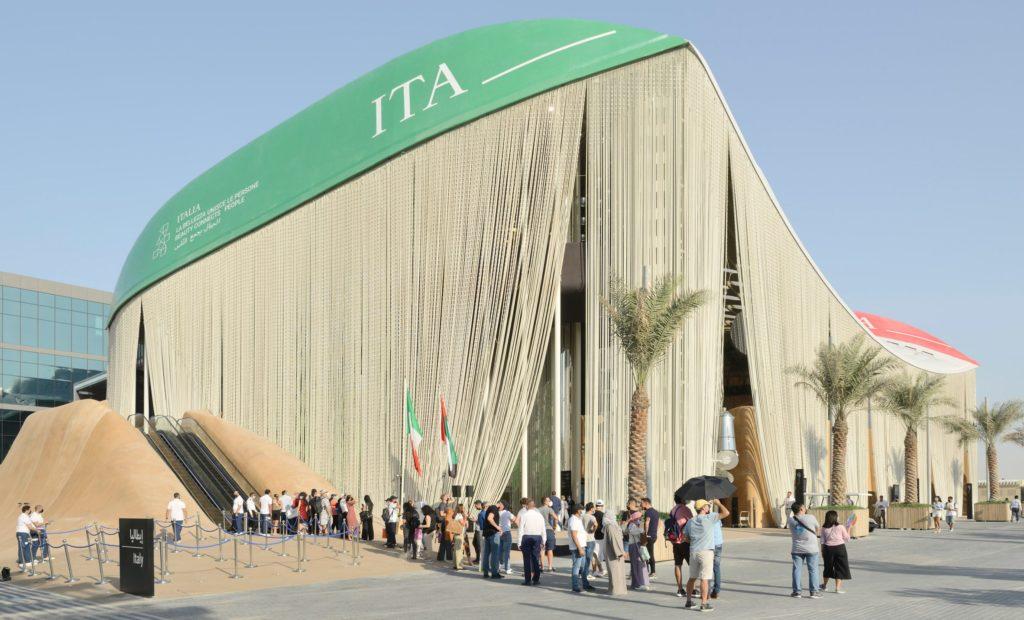
Italian Pavilion

The UK’s Pavilion

The mobility pavilion

UAE Pavilion

Qatar Pavilion 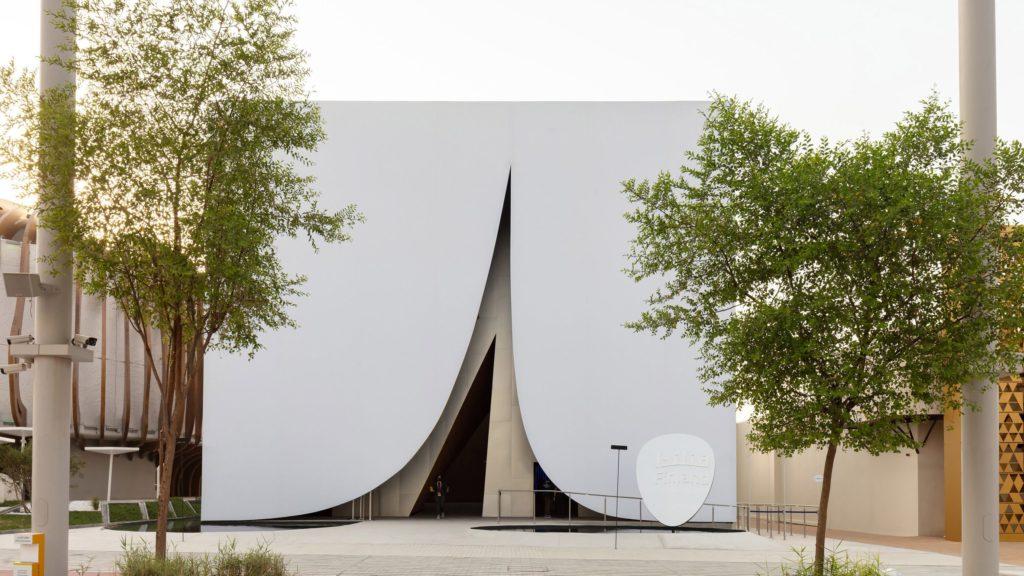
Finland Pavilion

Solar Trees at the Sustainability pavilion
ISLAM
Difference between righteousness & self-righteousness boils down to one word: Self
By Rahla Khan

Brave is the person who ventures to give advice to others these days – no matter how well-meaning – despite the looming fear of instantly being labeled “self-righteous” and “holier-than-thou.”
“Self-righteous” is a contemptuous pejorative commonly used nowadays, designed to silence the most dogged of do-gooders, and in the words of religious blogger and public speaker Mark Shea, “It’s perhaps the favorite term of abuse for anybody attempting to make a moral argument.”
But what does it actually imply? Shea says, “For most speakers of modern English, it means ‘I don’t like you and the moral system you express belief in makes me very uncomfortable and angry.’ Indeed, in postmodern culture, there is basically no difference between calling somebody ‘self-righteous’ and calling them ‘righteous.’ It’s a word that has irretrievably come to mean ‘Pharisaic’ or simply ‘full of yourself’.”
In a Prophetic narration, self-righteousness has been called one of the three Muhlikaat “destructive qualities,” along with unending greed and giving in to base desires.
Ibn Taymiyyah (may Allah have mercy upon him) spoke of the link between self-righteousness and Shirk (polytheism) and said, “Showing-off is (inherently associated) with self-righteousness. It is the pathway to associating partners with the Divine through (doing things to impress) creation; while self-righteousness is a doorway to associating partners with the Divine through (being over-impressed with) one’s self.”
Simply out, the difference between righteousness (which encompasses a whole range of meanings from piety to God-consciousness) and self-righteousness boils down to basically one word: Self.
“Truly he succeeds that purifies it (the Self/Soul), and he fails that corrupts it.” [Qur’an, 91:9-10]
Thus, the person who constantly strives to purify his soul from all that sullies it, and endeavors to advise others sincerely for the sake of Allah to do the same, is righteous.
And the self-righteous person is the one who is careless or blind to his own follies while his soul is riddled with the multiple maladies of Kibr (pride/arrogance), Sum’ah (making statements for the sake of impressing others and enhancing one’s reputation), Riyaa’ (performing acts of worship and other righteous deeds with the sole intention of showing off to people and seeking their praise or good opinion) and ‘Ujb (being enamored of one’s own self), and in this state “advises” others with no other purpose in mind but to belittle others and further his own interests.
Obviously, the difference between righteous and self-righteous behavior is as clear as day to Allah, Who is Subtle and All-Aware. However, it may be difficult for ordinary people to spot the difference, which is why it’s probably a good idea to exercise some self-restraint and good Dhann (thoughts) before branding a person “self-righteous” or “holier-than-thou” the minute they utter an opinion or express an idea that one doesn’t entirely concur with his own.
Ironically, self-righteousness works both ways, in the sense that we may be quick to brand another person “self-righteous” when in fact, we are as guilty of such behavior.
Among the perils of `Ujb – defined as “the magnification of one’s virtues, an exaggerated opinion of one’s own importance, an amplification of one’s good deeds that leads to excusing one’s own faults, while undervaluing the good in others, leading to a false sense of superiority” – is that it applies to both good and bad actions.
A wicked person may become as conceited and over-confident about the moral correctness of his position, just as an insincere person may be deluded about the sincerity of his intentions or the righteous person about his status in the eyes of Allah owing to his good deeds. This is all alluded to in the Qur’an:
“And what of him, the evil of whose deeds has been beautified in his eyes, so that he thinks them good?…” [Qur’an, 35:8]
The people of Lut (peace be upon him) mocked him and his companions when they did not indulge in abominations and sink into depravity with them, with the sarcastic words: “Drive them out of your city: these are indeed men who want to be clean and pure!” [Qur’an, 80:82]
Something similar is being perpetrated these days, with people condemning those who dare to take a moral stand in opposition of public views to the outposts of civil dialogue.
I find myself agreeing with Shea when he says, “Unless you can demonstrate that a person is making a moral argument that really is predicated on congratulating themselves as being without the need of divine grace due to their intrinsic goodness, there’s really no sense in calling such a person ‘self-righteous.’
Obnoxious, shrill, irritating, loveless, hostile, and rude, quite possibly. But not self-righteous.” Don’t you agree?
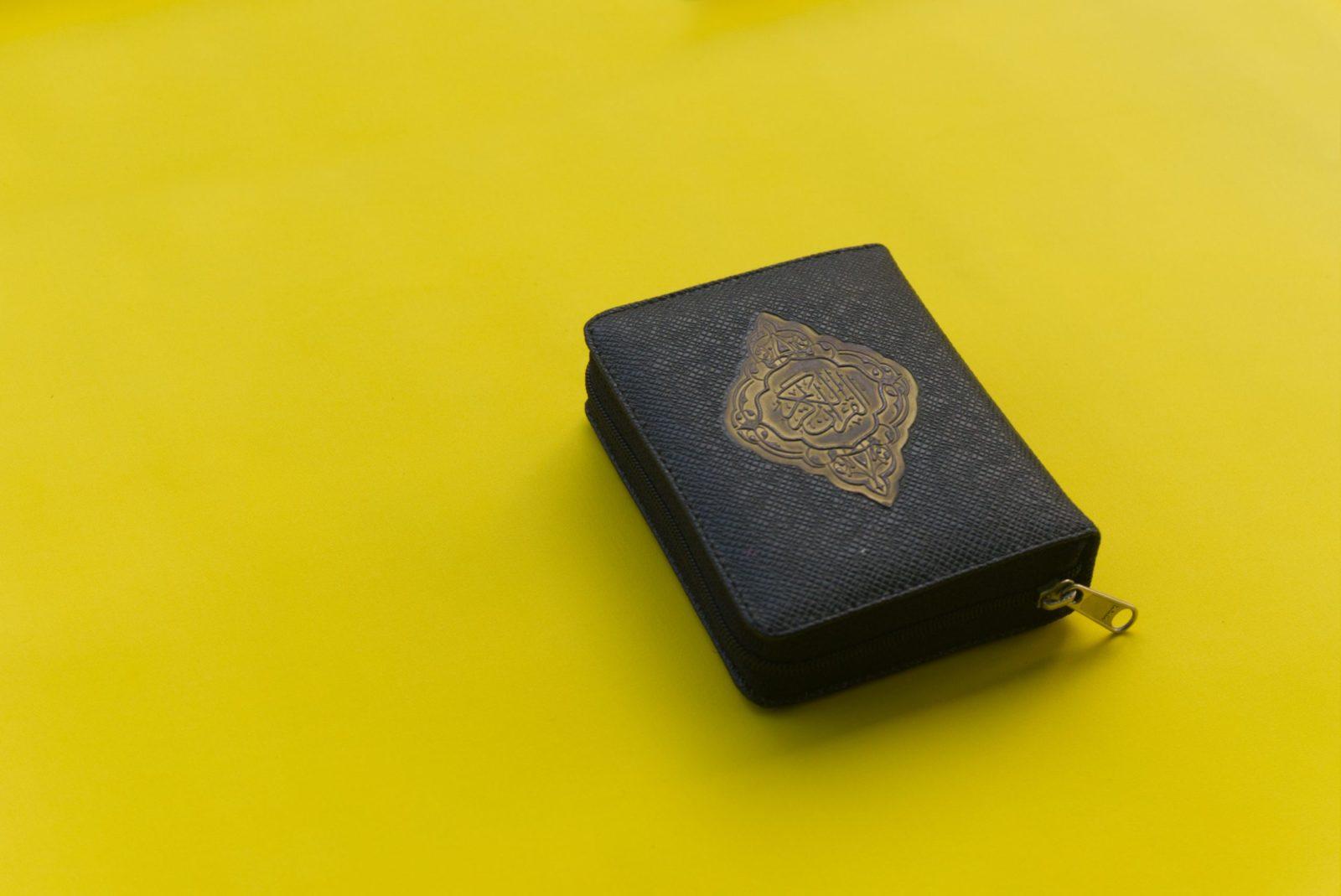
7 Lessons of Da’wah from Prophet Yusuf
By Zainub Khalid
‘Will you interpret our dreams for us?’ asked the two prisoners to Prophet Yusuf who was in prison because of the wrong accusations made by the minister’s wife.
“Will you interpret our dream for us? We think you are one of the Muhsinoon (doers of good).” Prophet Yusuf agreed to do so. He assured them that he would tell them the meaning of their dreams before their food arrived. However, he wanted to discuss something far more important with them before that.
Prophet Yusuf proceeded to inform them about Allah and monotheism. He gave a short and precise introduction of Islam and concluded his talk by interpreting their dreams for them.
This incident, mentioned in Surah Yusuf, verse 36-40, later paved a way for Prophet Yusuf’s release from prison and appointment as a minister of Egypt.
***
Allah mentioned several stories throughout the Qur’an, describing how the prophets and messengers preached, how some people accepted their message and how others haughtily rejected it. These stories are ingrained with several lessons that we can study and benefit from. Allah says:
“There was certainly in their stories a lesson for those of understanding. Never was the Qur’an a narration invented, but a confirmation of what was before it and a detailed explanation of all things and guidance and mercy for a people who believe.” [Qur’an, 12:111]
Here are some lessons we can derive from the incident of Prophet Yusuf with his prison inmates regarding the way he introduced them to Islam.
Character precedes words
When the two prisoners approached Prophet Yusuf, they said “… Inform us of the interpretation of this. Verily, we think you are one of the Muhsinun (doers of good).” [Qur’an, 12:36]
Though Prophet Yusuf was in prison, his inmates were able to recognize that he was a person with good character. Even before he spoke to them about Islam, he had already conveyed a silent message of da’wah to them.
Da’wah of actions speak louder and clearer than da’wah of words. Calling people to Islam and asking non-practicing Muslims to begin practicing is one aspect of da’wah. The other and more important aspect is to do and show it to them. By being consistent in good actions and conduct, one portrays a practical picture of what it is like to be a sincere Muslim and onlookers learn about Islam just by observing.
Grab the opportunity
When the prisoners asked about the interpretation of their dreams, Prophet Yusuf did not just answer them and let them go. He wisely used this opportunity to teach them about monotheism too. He seized the opportunity even though it was in the darkness of the prison. One does not need to set a stage or have a pre-arranged plan for doing da’wah. A well-read Muslim can give subtle da’wah within daily talk among people.
Wisely direct the conversation
Prophet Yusuf acknowledged that he has the ability to interpret dreams. He said:
“You will not receive food that is provided to you except that I will inform you of its interpretation before it comes to you. That is from what my Lord has taught me. Indeed, I have left the religion of a people who do not believe in Allah, and they, in the Hereafter, are disbelievers.” [Qur’an, 12:37]
Prophet Yusuf made it clear to them that his noble character and in-depth knowledge was due to his belief in Allah. He then goes on to speak about Allah.
He wisely directed the conversation to da’wah after promising the questioners that their dreams will be interpreted before their meals arrive. Similarly, one can wisely use his interactions with people as opportunities to do da’wah. However, one must be careful not to overdo this and force the people to listen to him or else he will drive them away.
Be short and precise
Prophet Yusuf was precise in his talk. He preached about the most crucial matter, monotheism, and left it there. He did not go into the details of Aqeedah or the rules and regulations of the religion. Instead he focused on the primary and the most fundamental issue that separates a believer from a non-believer – belief in the oneness of Allah. One must prioritize the topics that need to be discussed according to the situation and the audience. Filling the audience with overwhelming details in a short time will make the religion seem too difficult to follow and instead drive people away.
Engage the audience
Prophet Yusuf made sure that his listeners were engaged and interested in what he had to say. Even through the preaching, he asked them questions.
“O [my] two companions of prison, are separate lords better or Allah, the One, the Prevailing?” [Qur’an, 12:39]
He engaged the prisoners. He made them think and reflect about it.
Do not force
Prophet Yusuf did his duty by inviting the prisoners to the religion of Allah. He made it clear to them how their beliefs were wrong and their forefathers were in error. However, he did not force them in anyway. He simply gave a short and precise talk, which left a lasting impression on their minds, and then interpreted their dreams. The work of the Muslim is to guide the people and invite them to Islam. The ultimate guidance to accept that invitation comes from Allah. Thus the job of the da’ee is to keep preaching and not forcing people to accept it.
Be humble
Prophet Yusuf had the ability to interpret dreams and attributed that ability to Allah. Even when speaking to the prisoners about their wronged beliefs, he maintained his humbleness. There was no bitterness or pride in his tone, even though he was a prophet speaking to someone who were clearly in wrong.
One should not look down upon people when giving da’wah. It is very easy to fall in the trap as a flattered mind can easily be filled with pride and arrogance. It is important to constantly review intentions and stay humble.
10 Ways to Bring About the Love of Allah
By Ibn al-Qayyim (d. 751H)
1: Recitation of the Qur’an with reflection and understanding of its meanings and what is intended by it. [This helps] understand what its author intends from us.
2: Getting closer to Allah with the supererogatory acts of worship, after the obligatory ones, for they will take a person to another level of love.
3: Constant remembrance (of Allah) in every circumstance by the tongue, the heart, and actions, so a person’s share of love is in accordance with his share of remembrance.
4: Preferring His love over our own when desires overcome us and climbing to reach His love, even if the ascent is difficult.
5: The heart’s comprehension of His Names and Attributes, witnessing them and having knowledge of them, to immerse oneself in the garden of this knowledge and its fundamental pillars. Whoever knows Allah by His Names, Attributes and Actions, will, no doubt, love Him. For this reason the deniers of His Attributes (Mu’attilah)… are like highway robbers to the hearts, (they come in between it and) between reaching the beloved (i.e., Allah).
6: Witnessing His generosity, His benevolence, His favours and blessings, both hidden and open, for these things call to His love.
7: This is the most amazing of them all. The heart’s total defeat and humility in front of Allah, the Most High.
8: Being alone at the Time of the Descent of Allah for having private conversations with Him, reciting His Words, investigating the heart, displaying the manners of servitude whilst in front of Him and then to seal all of that with seeking forgiveness and repentance.
9: Sitting with the truthful lovers (of Allah) and gathering the good fruits (arising) from their speech, just as one picks out the best of fruits, and that you do not speak except when the benefit of the speech prevails and when you know that there is a betterment for you and benefit for others in it.
10: Keeping distant from everything that comes between the heart and Allah, the Mighty and Majestic.
So from these ten ways, the lovers will reach the (various) levels of love.
Source: The Path to Guidance by Ibn al-Qayyim
Let’s not get divided over fiqh differences

Some of the Muslims with whom we come into contact completely misunderstand, or deliberately ignore the abundance of permissible differences allowed by Allah, the Judge. This has led to a perverse labelling of good Muslims as deviant or, even worse, as ‘off the straight path’. Some have travelled far to study the religion only to return with a harsher and more critical attitude than ever.
These harsh brothers we are referring to have confused matters of Aqeedah (creed) with matters of fiqh (Jurisprudence). If someone claiming to be a Muslim has done an act of worship that is clear polytheism — such as making supplication to a dead person — there is no difference of opinion on this matter. However, if a man is seen placing his hands below his navel while praying, it is not the place of a layman to allege that he is outside the fold of Islam or to label him as a deviant. Rulings about where to put one’s hands in salah, slight differences in performing ablution, and many other issues vary according to the Hanafi, Maliki, Shafi‘i, and Hanbali jurists.
One Ramadan, I prayed the special communal night prayers in the mosque. After two units, the brother standing next to me asked if he could have a word with me. He took me to the side and said, “I noticed in the prayer that you held your hands this way, and you only raised your hands when saying ‘Allah is the Greatest’ this many times, and when you recited the Islamic testimony of faith, you did this with your finger instead of that.” My question to him was, “When did you worship Allah during all this monitoring of my prayer?”
***
Fiqh is vast. Some of the main reasons for different opinions in fiqh among the great thinkers and educated scholars are the varying methods of analysis and deduction, the use of weak hadiths as supplemental proof by some scholars, the choosing of one hadith over another that seems to contradict it, and many other factors.
I have personally spent time with the likes of Shaykh Wasi Allah ‘Abbas, who is a teacher in the Sacred Mosque in Makkah, and Shaykh ‘Abdur-Rahman al-Ajlan, President of the Sharia Court in Qaseem in the Kingdom of Saudi Arabia, and never once did I hear a word of partisanship from their mouths. These scholars have their positions and their proofs, but they do not label as deviant those who follow other positions and proofs.
❝
Sadly, what we see today are brothers abandoning other Muslim brothers because of minor issues of fiqh.
The scholars have earned the right to utter the words, “That is not the correct position.” They may use these words concerning various issues of worship and the like, but if scholars express their opinion with these words, they certainly do not mean that every other position leads to the hellfire. Neither you nor I have the license to expound on the meaning of the scholars’ words such that we claim that people are ‘removed from the straight path’.
In 2006, while I studied briefly with Shaykh ‘Abdullah ‘Abdur-Rahman, one of the teachers of Usool ad-Deen at the University of Madinah, he mentioned the method and intention of inviting people to Islam and urging them to correct their belief and application. He said, “A product will never sell if you are harsh. Only good manners will sell a product. The ones you are calling should feel good and feel that you are concerned about them.”
Sadly, what we see today are brothers abandoning other Muslim brothers because of minor issues of fiqh. We do not advocate one particular school or another from the four major schools of Islamic jurisprudence. We only advocate tolerance for one another in matters where tolerance is obligatory.
If you do not understand different opinions, then the joke will be on you. You will leave the mosque frustrated because you think that all the men inside are making ablution and praying incorrectly. Moreover, you will frustrate your brothers in Islam by badgering, hounding, and harassing them constantly to do things your way.
You will constantly show your lack of study and your inability to appreciate knowledge. You cannot just listen to a lecture where a teacher or scholar gives his opinion on the correct way to make ablution, and then go to the mosque and attempt to correct everyone you see doing something different. The scholars do not recommend this, nor is it their aim to bring division. They state the position that they believe is the strongest, without negating the other valid positions. You cannot go further than that.
Excerpted from ’44 Ways to Manhood’ by Taymullah Abdur Rahman
FAMILY

How the Prophet ﷺ dealt with his wives?
By Muhammad Salih Al-Munajjid
The Prophet of Allah ﷺ was a leading example in the manner he dealt with his wives, and a beacon of light that guides people to the best way of treating their wives, which would reflect on their marital life and on the community as a whole.
He ﷺ would spend time with his family and listen to what they had to say despite his responsibilities:
One night Aisha told him the long story of Umm Zar’, in which she said that eleven women gathered and pledged to reveal all their marital secrets to each other, and not to hold anything back. Each of them described her husband, and the best husband was that of Umm Zar’ who described her husband’s bounties and favors upon her. Aisha said: “The Messenger of Allah ﷺ said to me: “I am to you like Abu Zar’ is to Umm Zar’.”” [Bukhari]
A husband must allocate time to sit with his wife and hear what she has to say and socialize with her. Modern means of communication have facilitated for the husband to stay in touch with his wife all the time. He can send her SMS messages or call her to see how she is and this would not take more than a minute, but it would mean a lot to the wife.
He ﷺ did not hesitate to state his love for his wife:
‘Amr ibn Al-’Aas (a Companion) asked the Messenger of Allah ﷺ “Who amongst the people is dearest to you?” He ﷺ said: “Aisha.” He (‘Amr) then said: “Who amongst men?” He ﷺ said: “Her father.” [Bukhari]
Contrary to the Prophetic guidance, some men stay years without expressing love to the wife, while others may even consider this unbefitting and not manly. Expressing one’s love to the wife is one of the strongest means to improve and strengthen marital relations and maintain a happy marital life.
Aisha narrated: “I would drink when I was menstruating, then I would hand it (the vessel) to the Prophet of Allah ﷺ and he would put his mouth where mine had been and drink, and I would eat flesh from a bone when I was menstruating, then hand it over to the Prophet of Allah ﷺ and he would put his mouth where mine had been.” [Muslim]
This narration reflects his kind treatment, consideration and noble manners, and it proves that one should not be repelled from touching, sitting and eating with, or being close to his wife during menstruation.
He ﷺ was considerate of his wives’ feelings:
The Prophet of Allah ﷺ would notice when one of his wives was happy with him or upset. For example, he ﷺ said to Aisha: “I can well discern when you are pleased with me and when you are annoyed with me.” She asked, “How do you discern it?” Thereupon he ﷺ replied: “When you are happy with me you take an oath saying, ‘I swear by the Lord of Muhammad. However, when you are upset you would say, ‘I swear by the Lord of Abraham.” Aisha said: “Yes (you are right) O Messenger of Allah, but by Allah, I leave nothing but your name.” [Bukhari]
The Prophet of Allah ﷺ had to take care of the responsibility of the state, battles, preparing armies, propagating his message to the universe, sending messengers to heads of state and following up on all other related affairs. Despite the heavy load he had to shoulder, he ﷺ did not allow these responsibilities to prevent him from following up with his wives and being considerate towards their feelings.
He ﷺ would comfort his wives when they felt unwell and performed Ruqyah on them:
Aisha narrated: “The Prophet of Allah ﷺ used to visit his wives when they fell sick and place his right hand and perform Ruqyah for them (i.e. recite certain supplications and verses of the Qur’an as treatment). He ﷺ would say: ‘Allaahumma Rabban- naasi, ath-hibil-ba’sa, washfi, Antash-Shaafi, la shifaa’a illa shifaa’uka, shifaa’an la yughaadiru saqama [O Allah! the Lord of mankind! Remove this disease and cure (her)! You are the Great Curer. There is no cure but through You, which leaves behind no disease].’” [Bukhari]
The fact that the husband asks about the source of pain, places his hand mercifully on it and performs Ruqyah, has a great impact of the wife even if the pain remains, because she would feel that her husband cares for her, is considerate, feels her pain and empathizes with her suffering.
He ﷺ used to protect his wives:
An-Nu’maan ibn Al-Basheer (a Companion) narrated: “Abu Bakr came and sought permission to enter upon the Messenger of Allah ﷺ and overheard (his daughter) Aisha raising her voice over his voice. He was granted permission to enter.
He said to her while pulling her (aggressively), ‘How dare you raise your voice over the voice of the Messenger of Allah ﷺ?’ So the Messenger of Allah ﷺ stood between them (to protect her). After Abu Bakr left, the Messenger of Allah ﷺ said to her (to comfort her and make her happy after what her father did): “Did you not see how I protected you and stood between you and him?”
Later Abu Bakr came back and found him laughing with her. Abu Bakr was granted permission to enter, and addressed the Prophet of Allah ﷺ saying, ‘O Messenger of Allah, include me in your peace as I was part of your war.’” [Reported by Ahmad] Meaning, let me be part of your joyful times, as I was part of the time you had a problem.
He ﷺ used to help his wives in their housework:
Al-Aswad ibn Yazeed narrated that Aisha was asked, “What did the Messenger of Allah ﷺ do inside his house?” She answered, “He ﷺ kept himself busy helping his wife (in her housework), and when it was the time for the prayer, he ﷺ would get up for prayer.” [Bukhari]
He ﷺ would pay attention to his personal hygiene and smell:
The Messenger of Allah ﷺ would use the tooth stick (Siwaak) to clean his teeth as soon as he entered his house so that his wife would not smell a bad odor from his mouth.
Shurayh ibn Haan’i (a Follower belonging to the generation succeeding the Companions) narrated that he asked Aisha, “What was the first thing the Prophet of Allah ﷺ would do when he entered the house?” She said: “Clean his teeth with a Siwaak.” [Muslim]
As-Suyooti (a scholar) said: “The wisdom behind this is that his mouth smell might have changed after talking to people all day, and thus he ﷺ was keen on removing any odor as a way of being extra nice and kind in his treatment to his wives.”
A husband must adorn himself for his wife and maintain cleanliness for her, as Ibn ‘Abbas said: “I like to adorn myself for my wife, just as I like her to adorn herself for me, because Allah Says (what means): «And due to them [i.e. the wives] is similar to what is expected to them, according to what is reasonable.» [Qur’an: 2:228]” [Tafseer Ibn Jareer At-Tabari]
***
Even though the Messenger of Allah ﷺ joked and behaved in a lighthearted manner with his wives, he ﷺ was keen on training them in religious affairs and making leading examples out of them.
Ibn `Umar (a Companion) narrated that the Prophet of Allah ﷺ said: “All of you are guardians and are responsible for your wards. The ruler is a guardian and responsible for his subjects; the man is a guardian and responsible for his family.’’
He ﷺ encouraged them to be devout worshippers:
Aisha narrated that the Prophet of Allah ﷺ said to her: “O Aisha, always be conscious of Allah and maintain [the quality of] kindness [leniency] because whenever kindness [leniency] is added to something, it adorns it; and whenever something is devoid of kindness [leniency], it becomes disfigured [and defective].” [Ahmad]
Al-’Atheem Abaadi said: “The term “adorns it” means perfects it.”
Aisha narrated: “The Messenger of Allah ﷺ said: “O Aisha, beware of insignificant [minor] sins, for there is an angel assigned by Allah to record it.”” [Ibn Majah]
In another narration, the Prophet of Allah ﷺ said: “O Aisha, always be kind, for when Allah Wills goodness for a household, He guides them to kindness.” [Ahmad]
CHECK OUT OUR BOOKSTORE


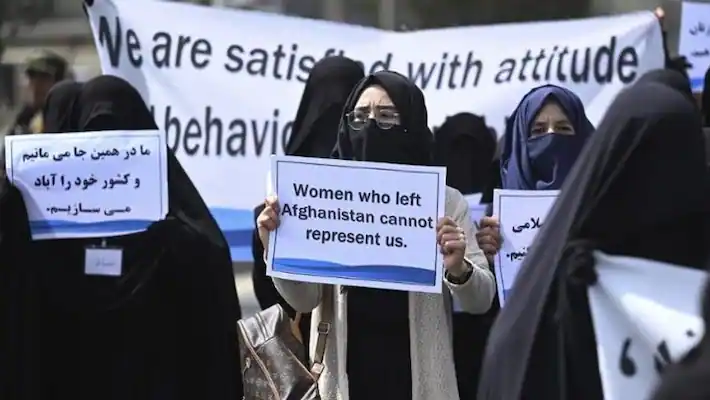
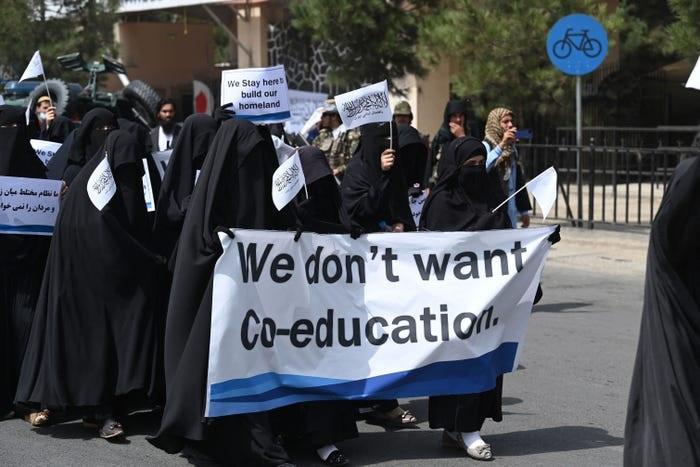


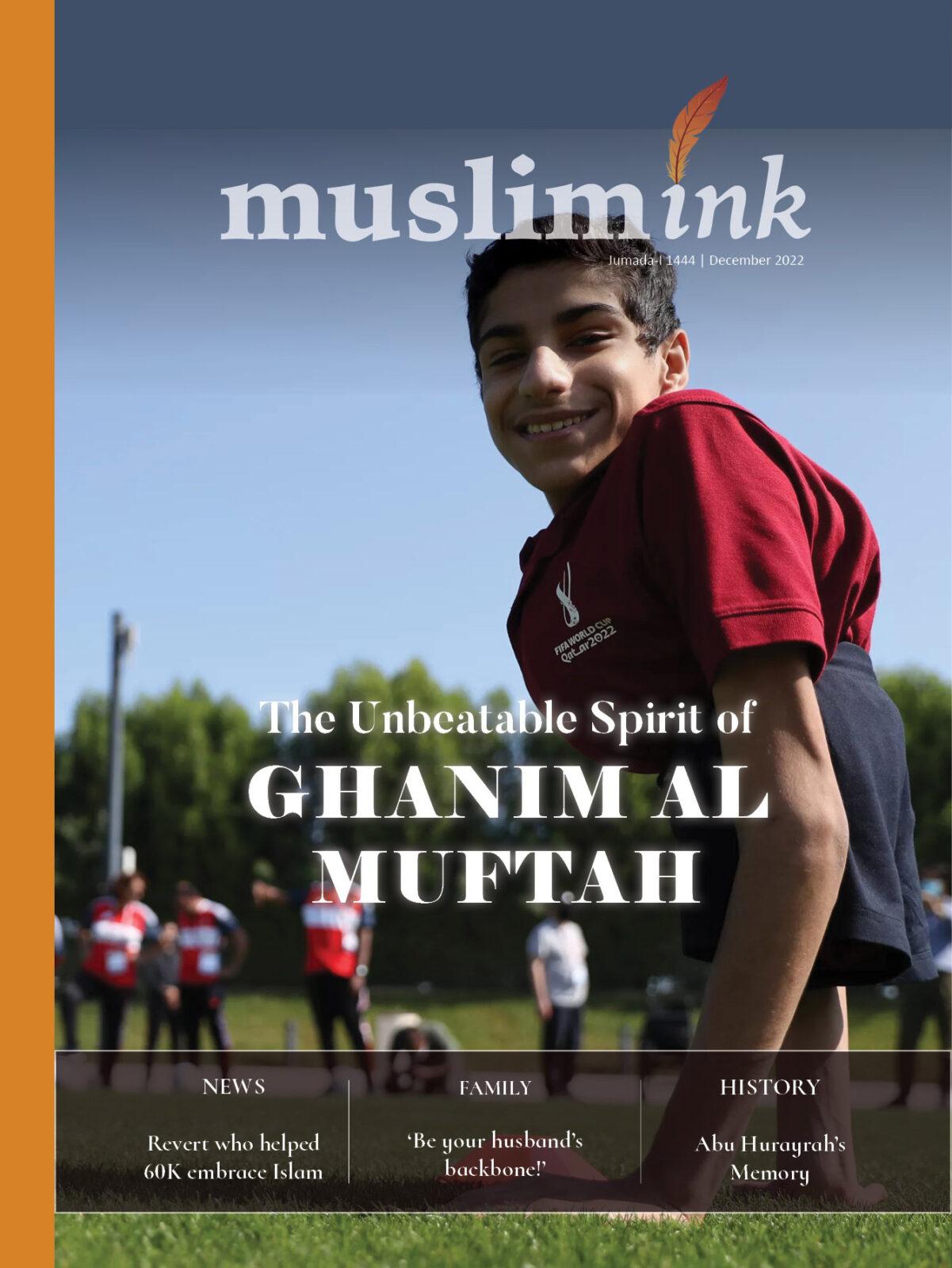
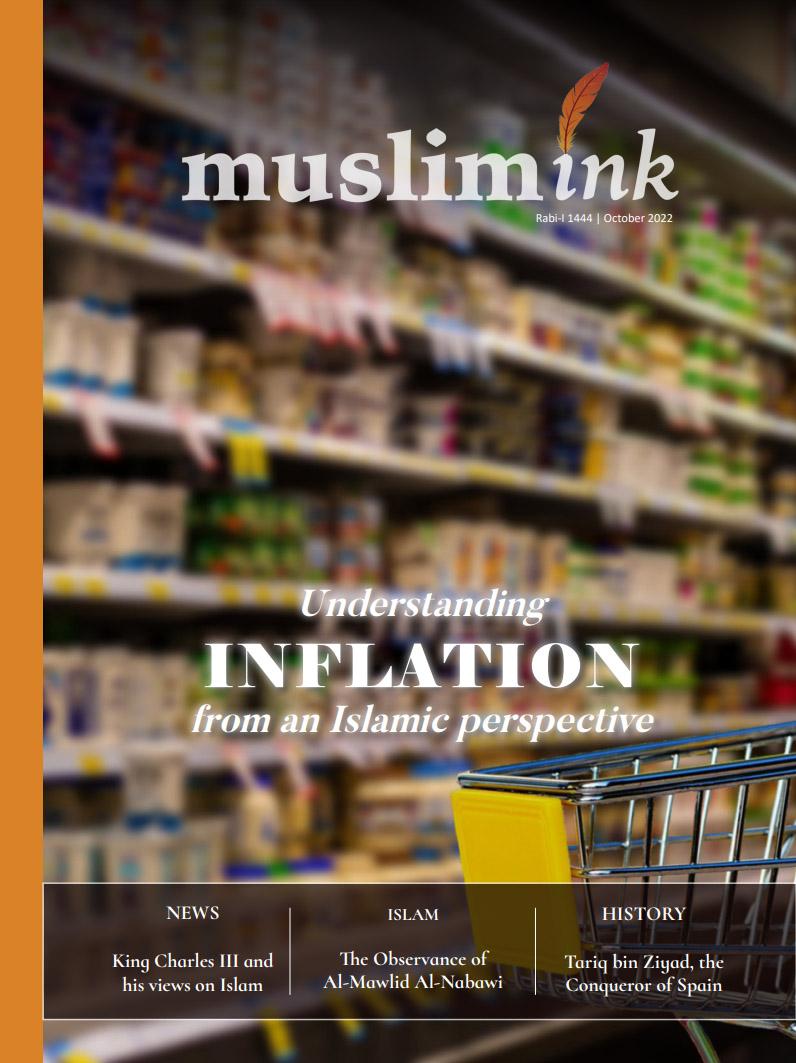
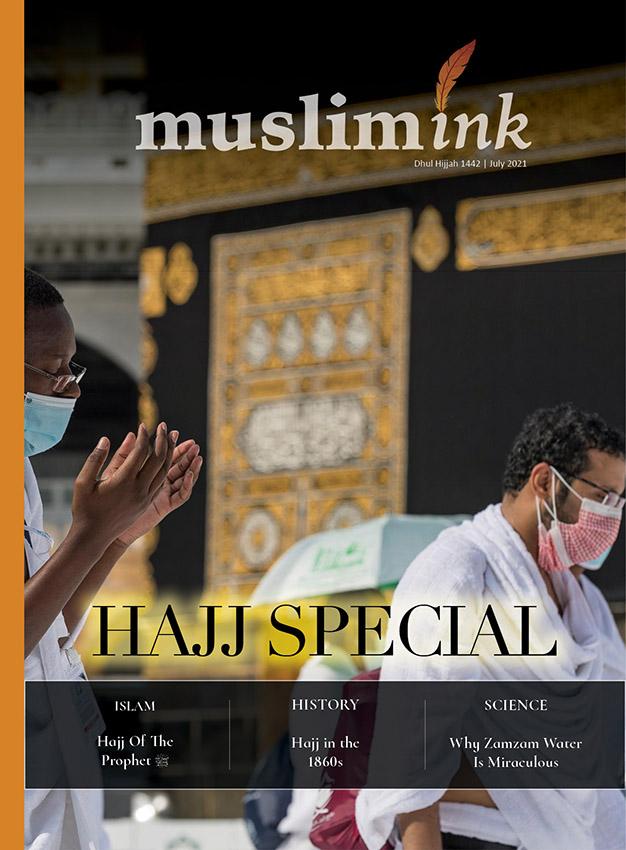
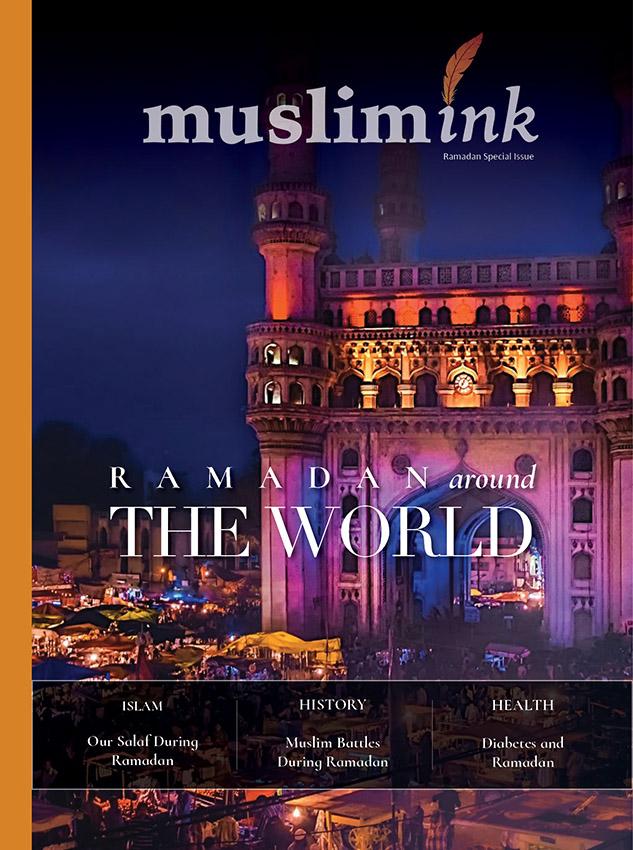
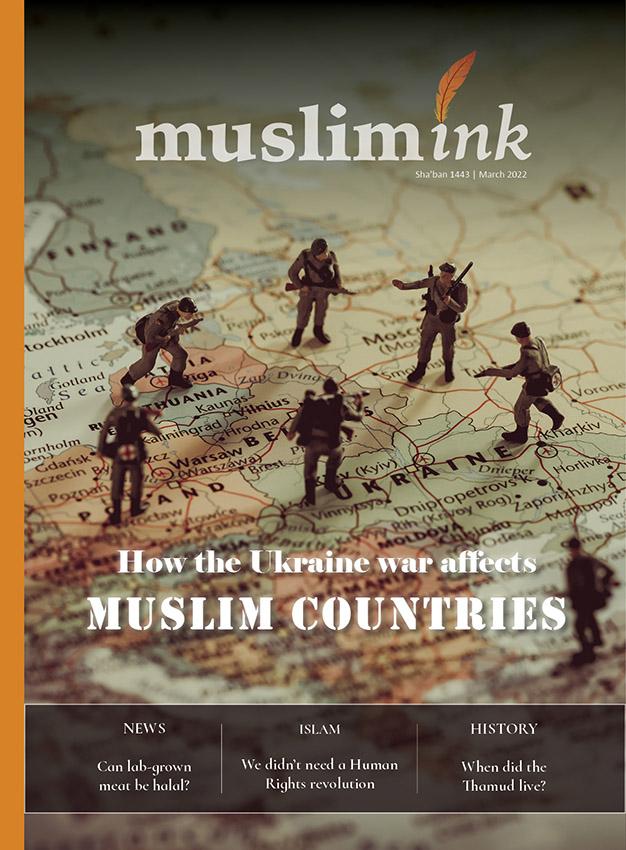

 Dr. Bilal Philips
Dr. Bilal Philips